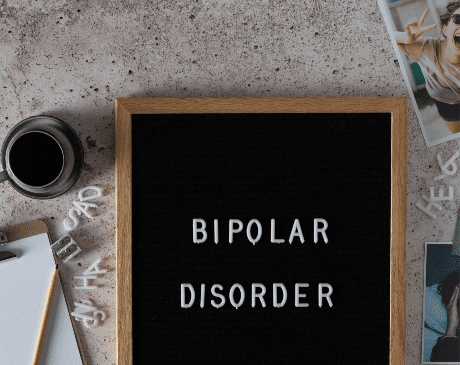What is Bipolar Disorder?
Bipolar disorder, previously known as manic depression, is a mental health condition characterized by extreme mood swings that can range from extreme highs (mania) to extreme lows (depression). Bipolar disorder is found among all ages, races, ethnic groups, and social classes. Although it can start as early as childhood, often appearing as depression during teen years, the usual age of onset is around 25. About 2.8 percent of Americans have been diagnosed with bipolar disorder, with almost 83 per cent of those instances categorized as severe.
Symptoms:
Most people who have this illness often talk about experiencing “highs” and “lows” that can be severe, ranging from feeling like being on top of the world to feeling despair and hopelessness. Such mood swings can disrupt normal life activities, therefore, distinguishing them from ordinary mood changes. These changes in mood can last for hours, days, weeks or months.
Symptoms of Depression:
-
Prolonged sadness or unexplained crying episodes
-
Significant changes in appetite and sleep patterns
- Irritability, anger, worry, agitation, anxiety
-
Loss of energy, lack of motivation
-
Worthlessness and feelings of guilt
-
Difficulty concentrating and/or making decisions
-
Thoughts that life is not worth living
Symptoms of Mania:
-
Decreased need for sleep without experiencing fatigue
-
Excessive energy
-
Heightened mood, exaggerated self-confidence and optimism
-
Excessive irritability, aggressive behavior
-
Impulsivity, reckless behavior
-
Rapid speech, thoughts, and flight of ideas
-
Increased sexual drive
Types of Bipolar Disorder
There are three types of Bipolar Disorder; Bipolar I, Bipolar II, and Cyclothymic Disorder which are determined by patterns and severity of symptoms associated with the highs and lows.
Bipolar I
Manic and depressive episodes that are well-defined are a hallmark of bipolar I illness. It is characterized by one or more manic episodes that last at least one week, or are so severe that hospitalization is required. Episodes of depression lasting for at least two weeks and hypomanic may also occur, along with mixed states (when symptoms of depression and mania or hypomania occur together.
Bipolar II
People with Bipolar II illness go through depressed periods, but they also go through hypomania in place of mania. Though less intense and sometimes lasting only four days, hypomania is similar to mania. Although they may still feel upbeat and energetic, people are less likely to take significant risks or become obviously chattier and more easily distracted
Cyclothymic Disorder
The ups and downs of the cyclothymic disorder are comparable to those of bipolar I and bipolar II disorder, although the episodes are relatively mild. You must have episodes of hypomania and depression for at least two years to be diagnosed with cyclothymic disorder. Because Cyclothymic Disorder is less common than other forms of bipolar disorder, it can be more challenging to diagnose because so many patients do not seek treatment. If left untreated, it might eventually progress into full-blown bipolar disorder.
Treating Bipolar Disorder
Compared to other mental health conditions, Bipolar Disorder has a higher stigma which makes seeking treatment more difficult. Despite the popular belief that this disorder is incurable, bipolar disorder can be effectively treated with various therapeutic modalities, including supportive psychotherapy or medication. If you’ve been feeling like your moods are all over the place or have noticed drastic shifts in moods of your loved one, you can contact Boston Neurobehavioral Associates to discuss your symptoms and treatment options.. The providers at Boston Neurobehavioral Associates offer integrative care for people with Bipolar Disorder. With an accurate diagnosis, all three types of Bipolar Disorder can respond well to treatments such as psychotherapy and psychiatric medicine. Boston Neurobehavioral Associates makes seeking treatment easy with multiple offices throughout Massachusetts and now offering services in Rhode Island . You can book an appointment by visiting www.bostonneurobehavioral.com or calling us at 508-979-5557.


